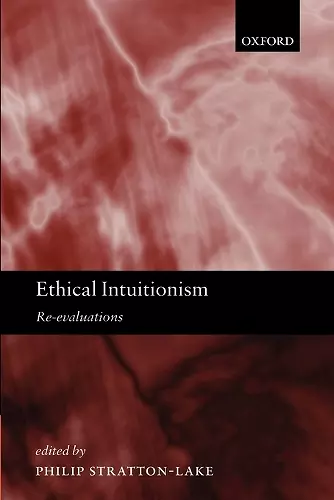Ethical Intuitionism
Re-evaluations
Format:Paperback
Publisher:Oxford University Press
Published:15th Aug '02
Currently unavailable, and unfortunately no date known when it will be back
This paperback is available in another edition too:
- Hardback£58.00(9780198250999)

Ethical Intuitionism was the dominant moral theory in Britain for much of the eighteenth and nineteenth and the first third of the twentieth century. However, during the middle decades of the twentieth century ethical intuitionism came to be regarded as utterly untenable. It was thought to be either empty, or metaphysically and epistemologically extravagant, or both. This hostility led to a neglect of the central intuitionist texts, and encouraged the growth of a caricature of intuitionism that could easily be rejected before moving on to 'more serious' philosophical theories. More recently, however, this hostility towards ethical intuitionism has subsided. A wide range of moral philosophers, from Aristotelians, to rule-consequentialists, to expressivists, Kantians, and deontologists, are beginning to look to the ethical intuitionists' work as a positive resource. It is, therefore, a good time to get clear on what it was that intuitionists said, and re-evaluate their contribution to our understanding of morality. This volume is the first serious engagement with ethical intuitionism in the light of more recent developments in ethical theory. It contains essays by eminent moral philosophers working in very different traditions whose aim is to clarify and assess ethical intuitionism. Issues addressed include whether the plurality of basic principles intuitionists adhere to can be grounded in some more fundamental principle; the autonomy of ethics and self-evidence; moral realism and internalism; and the open question argument and naturalism.
ISBN: 9780198250982
Dimensions: 234mm x 157mm x 17mm
Weight: 459g
314 pages